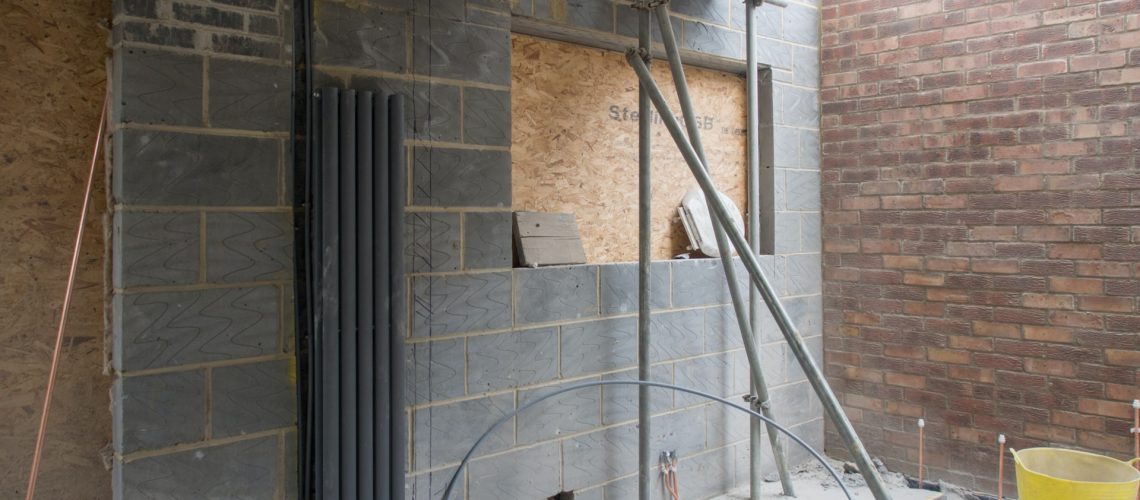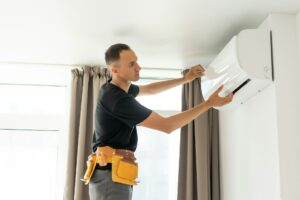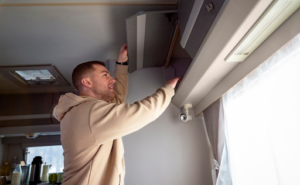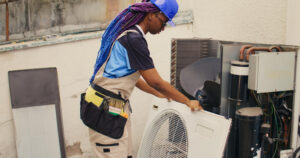Menu

Comprehensive Plumbing & Heating Guide for New Homeowners
New homeowners often face an overwhelming number of responsibilities as they navigate unfamiliar territory in maintaining and managing their homes. Among these responsibilities are ensuring the proper function and longevity of essential plumbing and heating systems. At Bromac, we recognize the need for informative, accessible, and practical guidance that caters specifically to the unique challenges faced by new homeowners. Our blog series will provide comprehensive insights into the world of home plumbing and heating systems, offering essential tips for maintenance, common issues, troubleshooting techniques, and more.
The topics covered in this series will demystify the complexities of home plumbing and heating systems, empowering new homeowners with the knowledge and confidence to maintain their homes to the highest standard. From understanding the workings of their plumbing and heating systems to recognizing common problems and how to address them, our blog series aims to deliver practical and relevant information that new homeowners can rely on.
Furthermore, we’ll explore the importance of regular professional inspections and maintenance, as well as provide guidance on when to call in the professionals for plumbing and heating repairs. Together, let’s work towards ensuring the comfort, safety, and functionality of homes for new homeowners across the Lower Mainland and Fraser Valley.
Join us as we delve into the world of home plumbing and heating systems with Bromac – your trusted plumbing and heating company in Abbotsford, BC. Be confident in knowing that you can maintain and manage your home like a pro, ultimately ensuring the well-being and happiness of you and your family within your new residence.
Understanding Your Home’s Plumbing and Heating Systems: A Beginner’s Guide
As a new homeowner, it is crucial to familiarize yourself with the fundamental components of your plumbing and heating systems. Your home’s plumbing system includes water supply pipes, drain and waste pipes, and vents. The water supply pipes deliver fresh water to your faucets, appliances, and fixtures, while the drain and waste pipes remove wastewater from your home. Vents serve to regulate the air pressure within your drainage system, allowing wastewater to flow smoothly. On the other hand, your home’s heating system – whether it uses a furnace, boiler, or heat pump – is responsible for maintaining comfortable indoor temperatures during colder months.
Here are a few key components of your plumbing and heating systems that you should be familiar with:
1. Main water shut-off valve: This valve controls the flow of water into your home. Locate and familiarize yourself with its operation in case you need to shut off the water supply during emergencies.
2. Individual shut-off valves: These valves control water flow to specific appliances and fixtures, allowing you to turn off the water supply to a particular area without disrupting the entire house.
3. Water heater: Your water heater provides hot water for household use. Familiarize yourself with its type (tank or tankless) and fuel source (electric, gas, or solar) to ensure proper usage and maintenance.
4. Thermostat: This device allows you to control your home’s temperature, which is essential for energy efficiency and comfort.
5. Air filters: Your heating system’s air filters help maintain good indoor air quality by trapping dust and other airborne particles. Regularly cleaning or replacing these filters is crucial for optimal system performance.
Common Plumbing and Heating Issues New Homeowners Should Be Aware of
As a new homeowner, recognizing and addressing common plumbing and heating issues can prevent costly repairs and maintain the comfort of your living space. Here are some typical concerns to watch for:
1. Leaky faucets and pipes: Inspect your faucets and exposed pipes regularly for signs of leaks. Addressing leaks promptly can prevent water damage and reduce water waste.
2. Slow drains: If water drains slowly from sinks or bathtubs, it may indicate a clogged drain. Clearing blockages is essential to maintaining proper drainage and preventing damage to your pipes.
3. Inconsistent water temperature: If your water temperature fluctuates or takes too long to warm up, it may be a sign of issues with your water heater. Regular maintenance and inspections can help identify and resolve such concerns.
4. Poor heating performance: If your heating system is inefficient or unable to maintain consistent indoor temperatures, it may need maintenance or repair. Don’t ignore these signs, as they may indicate more significant issues.
5. Unpleasant odours: Persistent odours in your home may signal issues with your ventilation or drainage systems. Investigate and seek professional help if necessary to ensure your home remains fresh and healthy.
DIY Maintenance Tips for Plumbing and Heating Systems
Proactive maintenance is vital for your home’s plumbing and heating systems, ensuring their longevity and efficient operation. Here are a few DIY maintenance tips that can save you money and prevent potential issues:
1. Regularly check for leaks: Inspect your faucets, pipes, and appliances (such as your dishwasher and washing machine) for signs of leaks and address them promptly.
2. Clean drains: Use a drain snake, plunger, or a mixture of vinegar and baking soda to clear minor clogs and prevent build-up in your drainpipes.
3. Clean or replace air filters: Regularly clean or replace your heating system’s air filters to improve performance and extend the life of your system.
4. Flush your water heater: Drain and flush your water heater yearly to remove sediment build-up, which can impact heating efficiency and cause damage.
5. Adjust the thermostat: Ensure proper use by adjusting the thermostat seasonally, and consider using a programmable thermostat for improved energy efficiency.
When to Call in the Professionals for Plumbing and Heating Repairs
Although DIY maintenance is useful for preventing issues and extending the life of your plumbing and heating systems, it’s critical to recognize when professional assistance is necessary. Knowing when to call in the experts can save you time and money on potentially extensive repairs. Reach out to professionals if you notice:
1. Recurring or persistent issues that DIY fixes do not resolve.
2. Significant water damage or the presence of mould and mildew.
3. Gas leaks, which can pose a serious safety hazard.
4. Unusual noises from your heating system, which may indicate serious mechanical problems.
5. Inconsistent water pressure, often resulting from issues with your water supply.
Conclusion
As a new homeowner, understanding your plumbing and heating systems and adhering to best practices for maintenance and repair is key to maintaining a comfortable, efficient, and safe living environment. With this comprehensive guide, Bromac aims to empower you with the knowledge needed to confidently manage your home’s essential systems. Don’t hesitate to reach out to our team of professionals in Abbotsford, BC, for all your plumbing and heating needs, ensuring expert support and peace of mind for you and your family throughout your homeownership journey.


